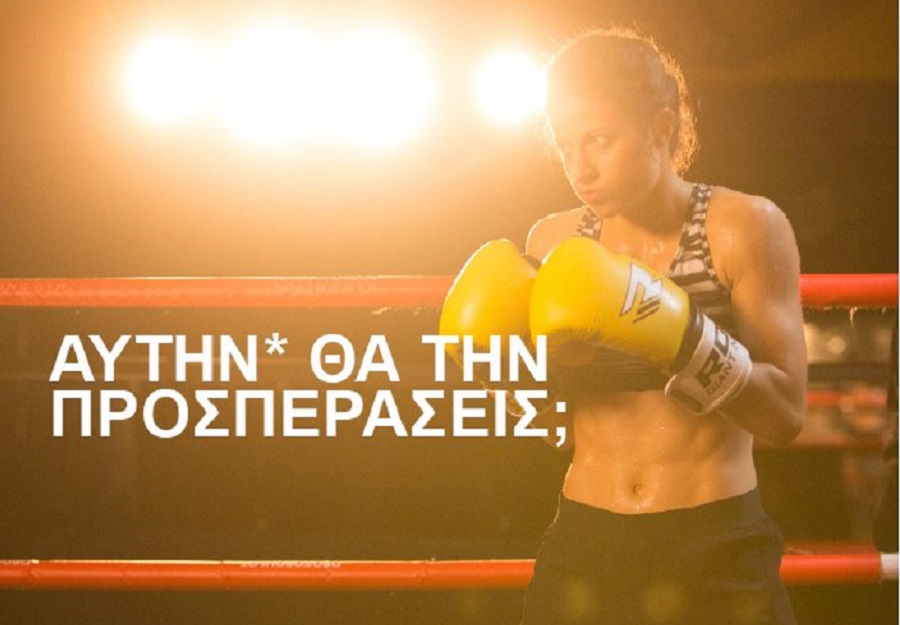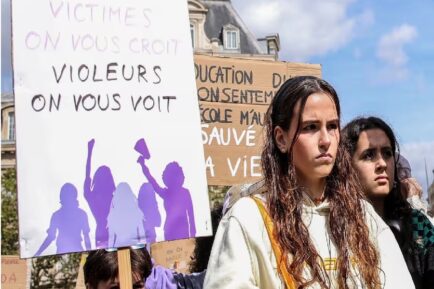The first phase of the “SPEAK: Legal support and awareness against gender-based violence” program, implemented by the Diotima Centre, during the period of September 2017 – July 2018, with the kind support of Papastratos, included the following three actions:
- Provision of free legal assistance to women – victims of gender-based violence
- creation of public awareness groups to provide open access to information on gender-based violence
- implementation of a digital campaign of national scope
The first phase of the project was a great success and will be continued for the period of September 2018 – April 2019.
Legal support
In the ten months of the project’s implementation, the Centre’s Legal Service served 100 women. The legal support was multifaceted and included:
- Legal advice, on women’s rights and the options available to them, so that they can make informed decisions about the management of their individual case
- legal assistance (filing a complaint and representation in court in cases of restraining orders, alimony applications, divorce, child custody, etc.)
- representation before administrative authorities (tax office, social security funds, etc.)
Quantitative data
It is worth noting that the vast majority of cases concerned cases of domestic violence (60%). The remaining cases concerned women who had been subjected to various forms of violence outside the family or the relationship. In particular: physical violence (13%), psychological and emotional abuse (7%), sexual harassment (4%), trafficking (1%), and rape (3%).
The majority of the women who came to the Legal Service of the Centre were Greek (61%), while the percentage of immigrant women was also significant (39%), with the main countries of origin being Albania, Ukraine, Russia, Egypt, etc.
The largest proportion of women beneficiaries (57%) belonged to the age category of 33-49 years old. This is followed by the categories: 16-33 years old (22%), 49-65 years old (12%), and 0-16 years old (9%).
It is worth noting that women over 50 years old had all suffered domestic violence since the beginning of their marriage and had never found the courage to report the fact and exercise their legal rights (accusations against their husbands).
Regarding the marital status of the women beneficiaries: 37% were in the process of divorce and did not live with the perpetrator, 23% were married, 15% were divorced, 18% were in a partnership, and 2% were unmarried.
The perpetrator was predominantly the partner/husband. In some cases, the perpetrator was a friend, neighbor, relative (parent), school (teacher), work (supervisor), or community member, while in others the perpetrator was unknown.
Qualitative data
As expected in cases of victims of systematic domestic violence, women did not easily decide to dissolve the marriage and take legal action against their husbands. A number of factors, which discouraged them, were:
- keeping the family together for the sake of the children
- concerns about the impact on the husband’s professional status (thus affecting his ability to meet the children’s expenses)
- social pressure not to break up the marriage
- financial dependency/insecurity
- an expectation that the perpetrator might change
In some cases of beneficiaries, the above factors led them to postpone legal action again, as well as to withdraw from it. However, the fact that most women now received psychosocial support from public structures (counseling centers, shelters, etc.) and other actors alongside legal aid proved crucial for their empowerment.
Campaign
The successful digital campaign “Don’t Skip – Don’t Skip Gender-Based Violence” was also implemented in the framework of the program. The campaign started with a short film competition for young filmmakers (18-30 years old).
This was followed, for two months (May – June 2018), by the publication of digital entries and three video spots on the website and social media of the organization.
Specifically:
Gallery of gender violence: through abstract art paintings we presented the consequences experienced by women – victims of domestic violence and rape.
The comments of those around: through common comments that a woman who suffers gender-based violence may hear, we sought to make visible the “legitimization” of gender-based violence by the social environment, which should not be tolerated.
Couples: through photographic snapshots of the everyday life of even young couples, we documented the difficulty and fear of women talking about the violence they experience.
Video spot, in which we invited the public not to skip the signs of gender-based violence. The video featured the champion of the Greek boxing team, Katerina Koutsogeorgopoulou, and her coach, Nikos Drosopoulos.
Video spot, with which we made visible the phenomenon of sexual harassment in public space. Romanna Lobach and Pavlos Iordanopoulos starred in the video.
Video spot, with which we presented the stereotypes of verbal abuse used by the perpetrator, in a daily incident of domestic violence. The video stars the popular actor Errikos Litsis.
With the campaign we wanted to make visible the phenomenon of gender-based violence in all its dimensions (domestic violence, economic deprivation, physical violence, psychological abuse, trafficking) and to raise awareness among the wider public, so that the everyday phenomena that we know, hear, suspect and learn about are not tolerated.
The dissemination of our central message was important. A number of media outlets presented the campaign. The response of social media users, especially women in the 25-45 age group, was also significant. Indicatively, we mention that the last spot, starring the popular actor Errikos Litsis, went viral, with over 1 million views.
Information seminars
Finally, in the first phase of the program, 10 public awareness groups were held, in cooperation with various university institutions (Athens University of Economics and Business, University of West Attica, NTUA, ASPAITE, SIVITANIDIOS, Panteion) and with institutions of a completely different profile, such as TEDxAthens 2018.
The information and awareness groups were intended to contribute:
- to challenge stereotypical perceptions and attitudes that reproduce gender violence
- to the recognition of everyday phenomena of gender-based violence
- to the cultivation of a culture of zero tolerance
- to the reflection on what gender discrimination means or is
The abundant and active participation of young people, the thoughts that were provoked, and their interesting comments to facilitate our work, was an important legacy.
Information about the implementing organization and the company
The Diotima Centre, active since 1989, is an NGO specializing in issues related to gender-based violence.
- It systematically provides support and reintegration services for women who have suffered gender-based violence and also organizes women’s empowerment groups
- It has long research experience and fieldwork on issues related to gender equality
- Trains professionals and officials (teachers, lawyers, judges, NGO staff, police authorities, etc.) on the recognition and holistic treatment of gender-based violence
- It is a national expert in the database of the European Institute for Gender Equality (EIGE).
- Collaborates with a wide range of actors (scientific community, institutions, civil society, feminist and LGBTI collectives, etc.)
To contact Diotima Centre:
Despina Tsuma, Legal Services Manager of Diotima Centre, tel. 2103244380 (Mon-Fri 12.00-17.00), legal.diotima@gmail.com
Papastratos company has been a leader in the production and marketing of tobacco products in Greece for more than eight decades. In 2017, it turned a page in its history by implementing a major investment of €300 million to convert its Aspropyrgos plant into a dedicated production facility for heated tobacco sticks for the first new tobacco product of potentially reduced risk compared to conventional cigarettes, IQOS. The Papastratos plant becomes the second plant worldwide in the network of parent company Philip Morris International (PMI) to exclusively produce heated tobacco sticks and is expected to have significantly enhanced export activity. This new investment by the company creates 400 direct new jobs, bringing the total number of direct and indirect employees of Papastratos to 1,200. Papastratos and PMI have traditionally absorbed most of the Greek production of oriental tobacco. In recent years, the company has undertaken significant initiatives to alleviate the needs of vulnerable social groups through an extensive Corporate Social Responsibility program. Papastratos has been repeatedly awarded as Best Work Place and Top Employer for its dynamic work environment and has been named “No 1 Admired Company in Greece” and “No 1 Admired Industry” by Fortune magazine.
For more information, see here
To contact the company:
Christina Akouri, Papastratos Communications Manager, tel. 210 4193584, christina.akouri@pmi.com
Akis Kelesis, aea relate, tel. 210 7418935, kelesis@aea.gr.





